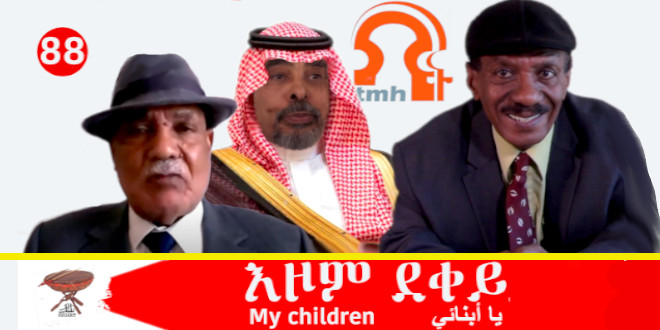A forgotten city thought to date back as far as the 10th century AD has been uncovered by a team of archaeologists in eastern Ethiopia.
Artefacts from Egypt, India and China have been found in the city in the Harlaa region.
The archaeologists also uncovered a 12th Century mosque which is similar to those found in Tanzania and Somaliland.
Archaeologists says this proves historic connections between different Islamic communities in Africa.
"This discovery revolutionises our understanding of trade in an archaeologically neglected part of Ethiopia. What we have found shows this area was the centre of trade in that region," lead archaeologist Professor Timothy Insoll from the University of Exeter said.
The team also found jewellery and other artefacts from Madagascar, the Maldives, Yemen and China.
Harlaa was a "rich, cosmopolitan" centre for jewellery making, Prof Insoll said.
"Residents of Harlaa were a mixed community of foreigners and local people who traded with others in the Red Sea, Indian Ocean and possibly as far away as the Arabian Gulf," he said.
'City of giants'
BBC Ethiopia correspondent Emmanuel Igunza says there was a local myth that the area was occupied by giants because the settlement buildings and walls were constructed with large stone blocks that could not be lifted by ordinary people.
However the archaeologists found no evidence of this.
"We have obviously disproved that, but I'm not sure they fully believe us yet," said Prof Insoll.
A statement from the team says the remains of some of the 300 people buried in the cemetery are being analysed to find out what their diet consisted of.
Further excavations are expected to be conducted next year.
A religious crossroads
Ethiopia was one of the earliest places known to be inhabited by humans. In 2015 researchers discovered jaw bones and teeth in the north-west of the country dating to between 3.3m and 3.5m years old.
Coptic Christianity was introduced from Egypt and was adopted as the religion of the Kingdom of Aksum in 333 AD. The Ethiopian church maintains that the Old Testament figure of the Queen of Sheba travelled from Aksum in northern Ethiopia to visit King Solomon in Jerusalem.
Islam arrived in Ethiopia in the 7th Century as early Muslim disciples fled persecution in Mecca. The main seat of Islamic learning in Ethiopia was Harar, which is located near Harlaa. Harar is said to be among the holiest Islamic cities and has 82 mosques, including three dating from the 10th Century, and 102 shrines, according to Unesco.
Today there are about 30m Christians and 25m Muslims in the country, according to 2007 census figures.
A forgotten city thought to date back as far as the 10th century AD has been uncovered by a team of archaeologists in eastern Ethiopia.
Artefacts from Egypt, India and China have been found in the city in the Harlaa region.
The archaeologists also uncovered a 12th Century mosque which is similar to those found in Tanzania and Somaliland.
Archaeologists says this proves historic connections between different Islamic communities in Africa.
"This discovery revolutionises our understanding of trade in an archaeologically neglected part of Ethiopia. What we have found shows this area was the centre of trade in that region," lead archaeologist Professor Timothy Insoll from the University of Exeter said.
The team also found jewellery and other artefacts from Madagascar, the Maldives, Yemen and China.
Harlaa was a "rich, cosmopolitan" centre for jewellery making, Prof Insoll said.
"Residents of Harlaa were a mixed community of foreigners and local people who traded with others in the Red Sea, Indian Ocean and possibly as far away as the Arabian Gulf," he said.
'City of giants'
BBC Ethiopia correspondent Emmanuel Igunza says there was a local myth that the area was occupied by giants because the settlement buildings and walls were constructed with large stone blocks that could not be lifted by ordinary people.
However the archaeologists found no evidence of this.
"We have obviously disproved that, but I'm not sure they fully believe us yet," said Prof Insoll.
A statement from the team says the remains of some of the 300 people buried in the cemetery are being analysed to find out what their diet consisted of.
Further excavations are expected to be conducted next year.
A religious crossroads
Ethiopia was one of the earliest places known to be inhabited by humans. In 2015 researchers discovered jaw bones and teeth in the north-west of the country dating to between 3.3m and 3.5m years old.
Coptic Christianity was introduced from Egypt and was adopted as the religion of the Kingdom of Aksum in 333 AD. The Ethiopian church maintains that the Old Testament figure of the Queen of Sheba travelled from Aksum in northern Ethiopia to visit King Solomon in Jerusalem.
Islam arrived in Ethiopia in the 7th Century as early Muslim disciples fled persecution in Mecca. The main seat of Islamic learning in Ethiopia was Harar, which is located near Harlaa. Harar is said to be among the holiest Islamic cities and has 82 mosques, including three dating from the 10th Century, and 102 shrines, according to Unesco.
Today there are about 30m Christians and 25m Muslims in the country, according to 2007 census figures.









